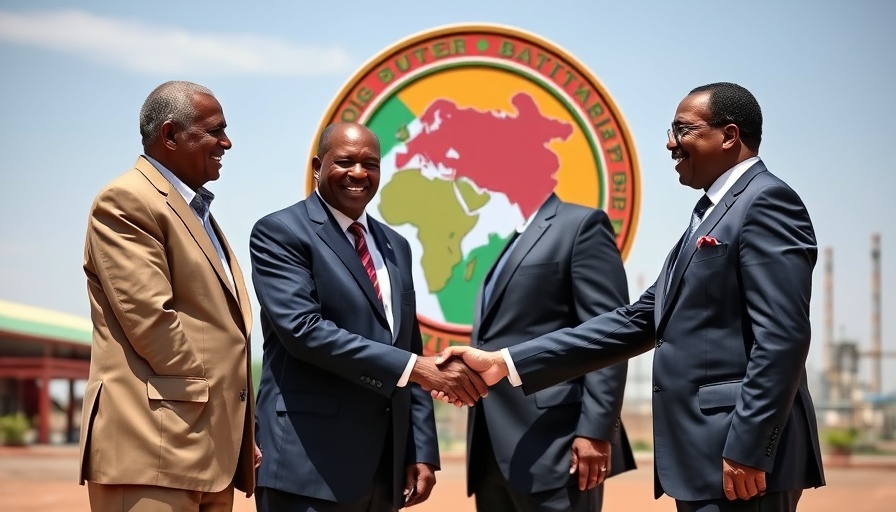
Venezuela's Strategic African Oil Outreach
In a bold move to revitalize its struggling economy, Venezuelan President Nicolás Maduro is embarking on a mission to African oil-producing nations, aiming to secure vital investments for the beleaguered hydrocarbon sector. With U.S. sanctions severely crippling its oil industry, this outreach not only signifies an urgent need for financial support but also highlights the growing importance of African resources in the global energy landscape.
Embracing the Pan-African Opportunity
This initiative positions Venezuela at the intersection of economic revival and global energy demands, as it seeks to forge partnerships that align with the spirit of Pan-Africanism. By appealing to these countries, Maduro is not merely seeking financial aid; he is tapping into a broader narrative of continental solidarity and mutual benefit. African nations, many of which are currently navigating the complexities of economic growth and climate change, could see a collaboration with Venezuela as an opportunity to enhance trade, improve infrastructure, and innovate within their sectors.
The Context of Global Oil Competition
The geopolitical implications of Venezuela's outreach are profound. As oil prices continue to fluctuate amid global tensions and supply chain disruptions, the race for energy dominance intensifies. Countries like Nigeria and Angola, which both boast significant oil reserves, are critical players in this equation. Venezuela’s engagement with Africa reflects a growing trend where nations, especially those under economic pressures, seek out alternative partnerships that transcend traditional power dynamics. This could mark a new era of investment strategies that prioritize regional cooperation over reliance on established powers.
Challenges Ahead: Corruption and Governance
However, the path forward is fraught with challenges. Corruption and governance issues are rampant in both Venezuela and many African nations. Dependency on oil, without substantial regulatory frameworks, has often led to economic instability and democratic backsliding. For Maduro to succeed in securing investment, he must demonstrate a commitment to reform and governance that builds trust among potential African partners. This includes addressing human rights concerns and fostering transparent dialogue about the future of oil exploration and exploitation.
Future Predictions: A Shift in Global Energy Alliances
Looking ahead, this outreach could foreseeably reshape global energy alliances. As nations prioritize sustainable development and renewable resources, the ability to forge new partnerships based on shared interests will be fundamental. African countries could leverage their resources not just for immediate revenue but as a stepping stone toward greater autonomy in energy production. The adaptability of both Venezuela and African nations in the face of climate change and energy demands will be key to their collaborative success.
Conclusions: A Call for Informed Engagement
For professionals and stakeholders interested in the intersections of economics, energy policy, and governance, the developments from Maduro's African mission present both opportunities and warnings. Engaging with this unfolding narrative is crucial for understanding the evolving dynamics of global energy markets. As Venezuela seeks to re-establish its presence in a world increasingly aligned with innovation and sustainability, the implications for Africa’s role are significant. It’s a time for informed engagement, critical to ensuring that partnerships formed today will yield responsible and long-term benefits.
 Add Row
Add Row  Add
Add 




Write A Comment